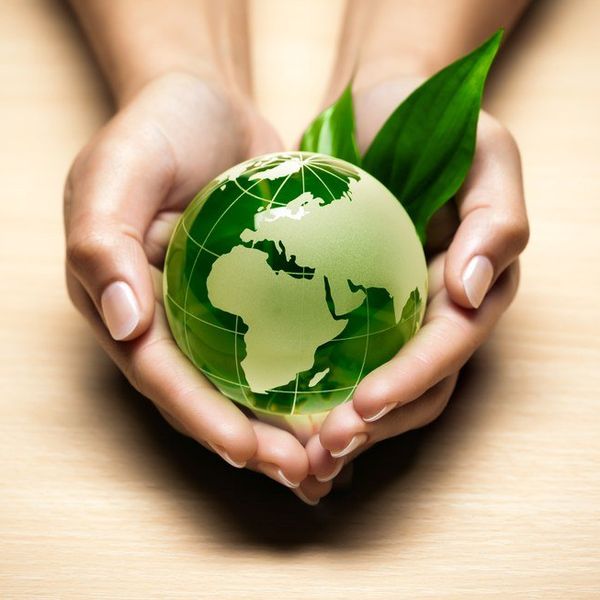Last weekend, I sat next to a passenger in a car that carelessly threw her used napkin out of the window. Yesterday, I went walking in the woods and had to step over contents of a garbage pail that had been left for the soil beneath it to decompose. And every day, the Earth receives something and transforms it; that napkin, the garbage on the trail and the waste spread about this campus. The Earth accepts the garbage put into it with equanimity. Mother Nature will accept our perils without retaliation. And if we pour nutrients into her roots, she will never boast of the beauty that she holds. If this is true, then why must we dose this planet in our selfish ways by diminishing natural capital and, in turn, the means of our own survival.
Our humanity has kept the tendency of only caring for things that one, has economic value and two, is best in their interest to care about. The land around us has no economic value to offer to our community that can be visualized. Because of this intangible prospect, people do not see the effects of our deteriorating Earth. It is difficult for members of our instantly gratified society to see how these slow-moving changes are depreciating life and the life of future relatives.
In order to change this mindset, people must have an internal change within in order to apply sustainability and conservation to their own lives. This can be developed after humanity realizes the connection of the Earth to their existence. Everyone must realize this connection, including the people that falsely understand Global Warming and environmental change. By realizing there is a common thread of all Earth’s living organisms, which, in short, is that Earth supports each organism, we can better connect ourselves to the planet in which we live. If our soil is not fertile then vegetation is affected. If vegetation is affected, animals die off. And, what is often overlooked is that we are a part of this group of mammals that will die off. Selfish as we are, humans do not consider themselves as the affected members of this ecosystem depreciation. We, selfishly take natural resources and add toxins into our environment through grand scale depreciation, by burning of fossil fuels, and through small-scale depreciation of the environment, by throwing garbage where we please. Our main concern is that we must consider ourselves a part of the lifecycle that we disrupt every day. We excuse ourselves of this chain when we throw garbage on the ground, leave electricity running, or when we choose to participate in everyday conveniences that destroy our planet's biodiversity.
What humanity does not realize now is that unplugging our devices, recycling and “going green” isn’t something that can fix the problem anymore. These strategies help but they merely cusp the surface of our Earth’s environmental issues. The real killers of our planet are the things we can’t see that we use to better convenience our life on Earth. These burning of fossil fuels are destroying our planet silently by increasing the natural capital degradation and using much more resources faster than Earth can remake them. In fact, the number of Earth’s needed to support the ecological footprint of today is one and half. And, this ecological footprint is only growing. The biggest problem with this is that it is not something that is tangible to see. In this case of protecting our planet, we have to be aware of the future. People do not want to think that this planet is dying and this mindset of ignorance only increases our ecological footprint.
Why don’t they care? It’s simple; people that don’t care about the planet now, cannot see how it affects them in the long run. It doesn’t hurt them to think that their future generations won’t see the earth as we see it today. Why should they if their generation isn’t the one that is affected? The truth is that this extreme global change is affecting them now; people are just too blind to see it. I want to know at what point did we get so selfish. At what point did we stop caring about our responsibility to keep humility and kindness the way we live, especially to the planet that offers us so much life. It is clear that in order to spark this change, we must reignite the social conscience from people to land.
So what should we do? Well, for me, what I am not is a scientist, but what I absolutely am, is an advocate for leaving our planet the way we left it. I would hope for a change that brings people to love the Earth the way it so humbly loves us, with equanimity. And as I said before, the hardest part of coming to terms with this issue is that we are unaffected by this problem in the daily moments of our life. That is why we should allow nature to become daily attributes to our happiness in life. So often we disconnect ourselves from nature. We deem it as something that is entirely unlike our own population. We forget that this planet is the very reason why we are sustaining life. Until we understand that nature is a part of our ability to be alive and that there is no disconnect from ourselves to the outdoors, only then can we make better actions in representing the Earth in our worldly decisions.
I encourage you to think like the earth. I encourage you to understand where you come from. But most importantly, I encourage everyone to advocate for our land. It is what keeps us living, humble and happy. Listen to mother nature because she is desperately calling out to us and we are desperately in need of her help, too.





















